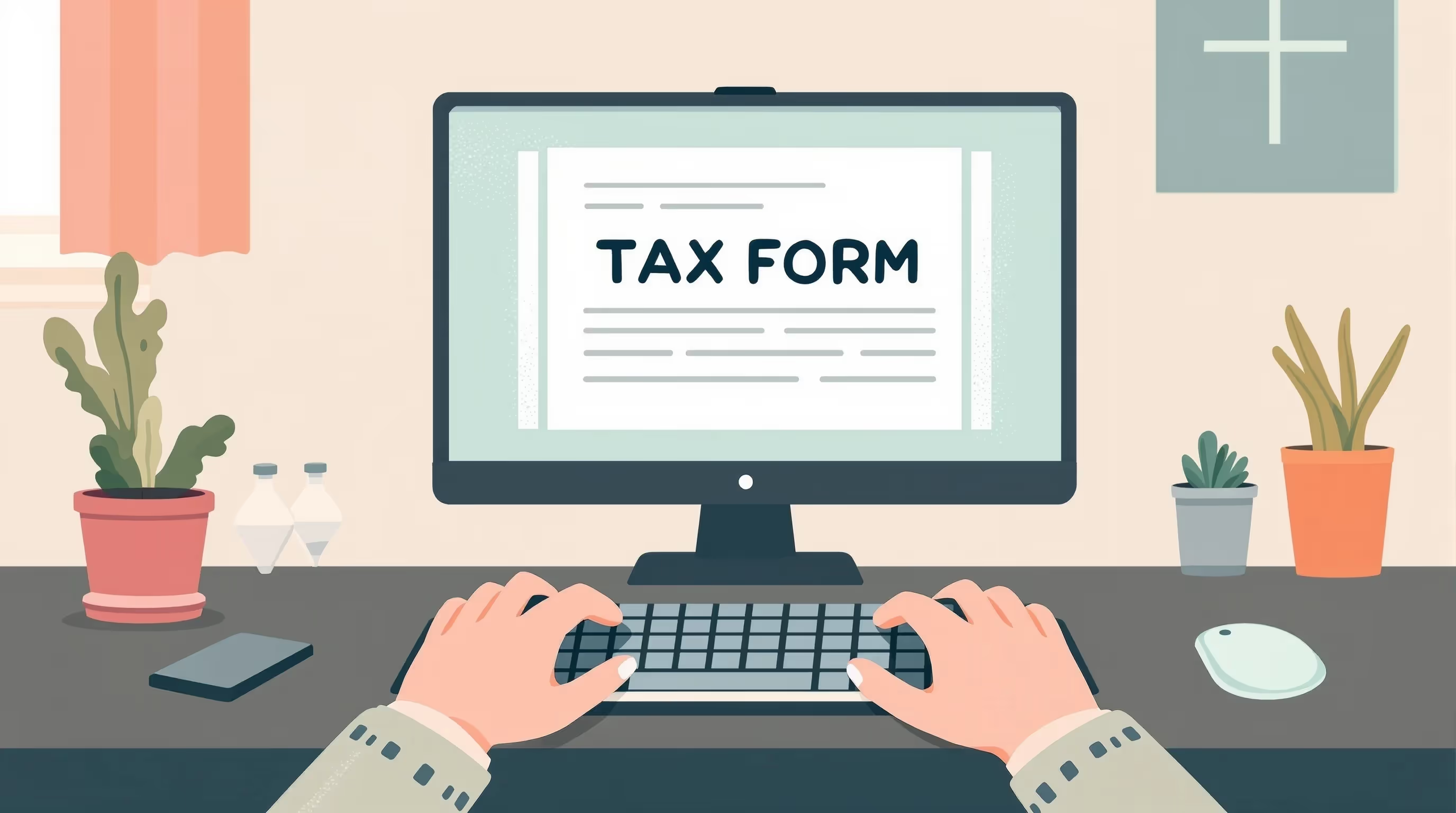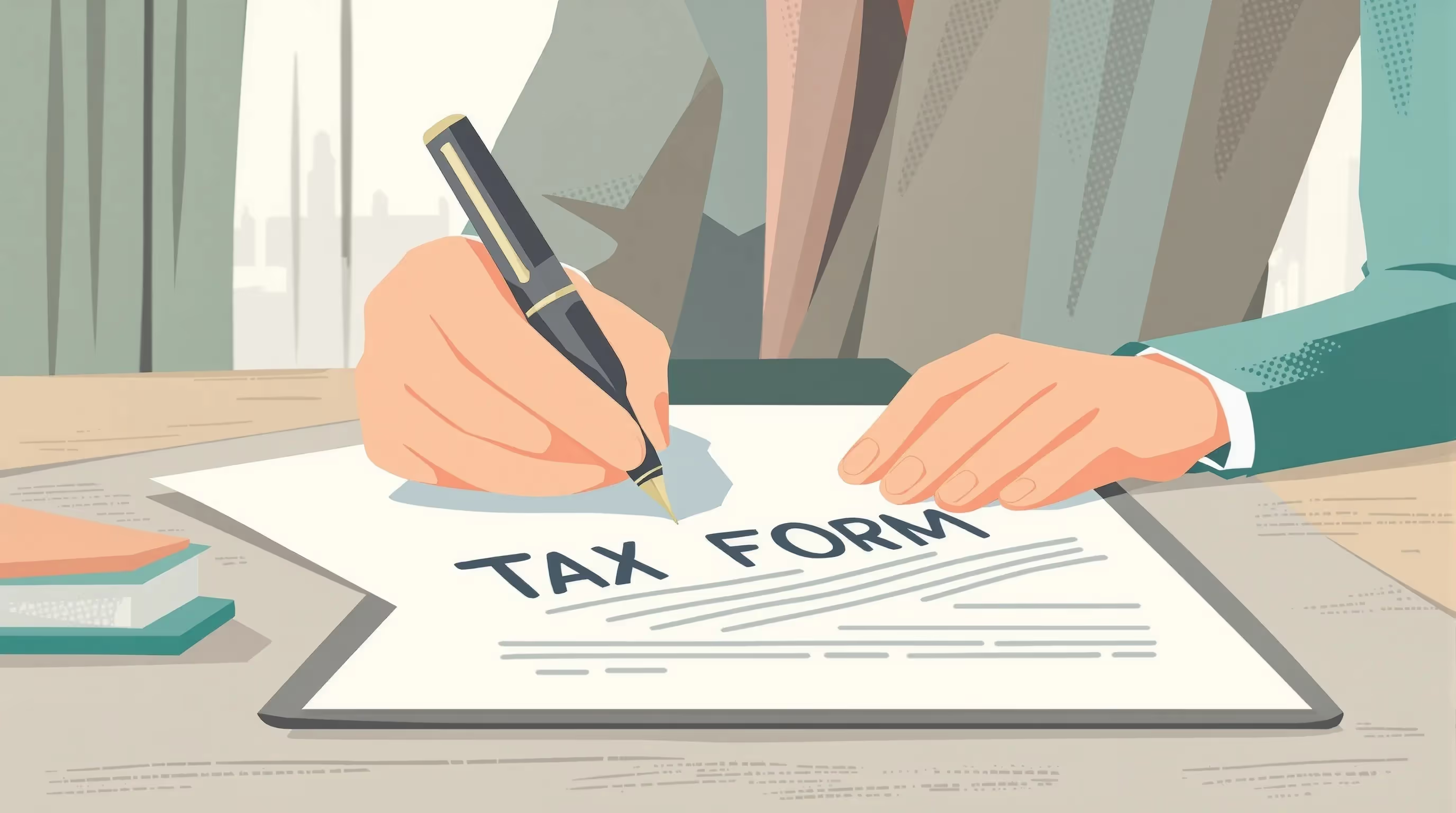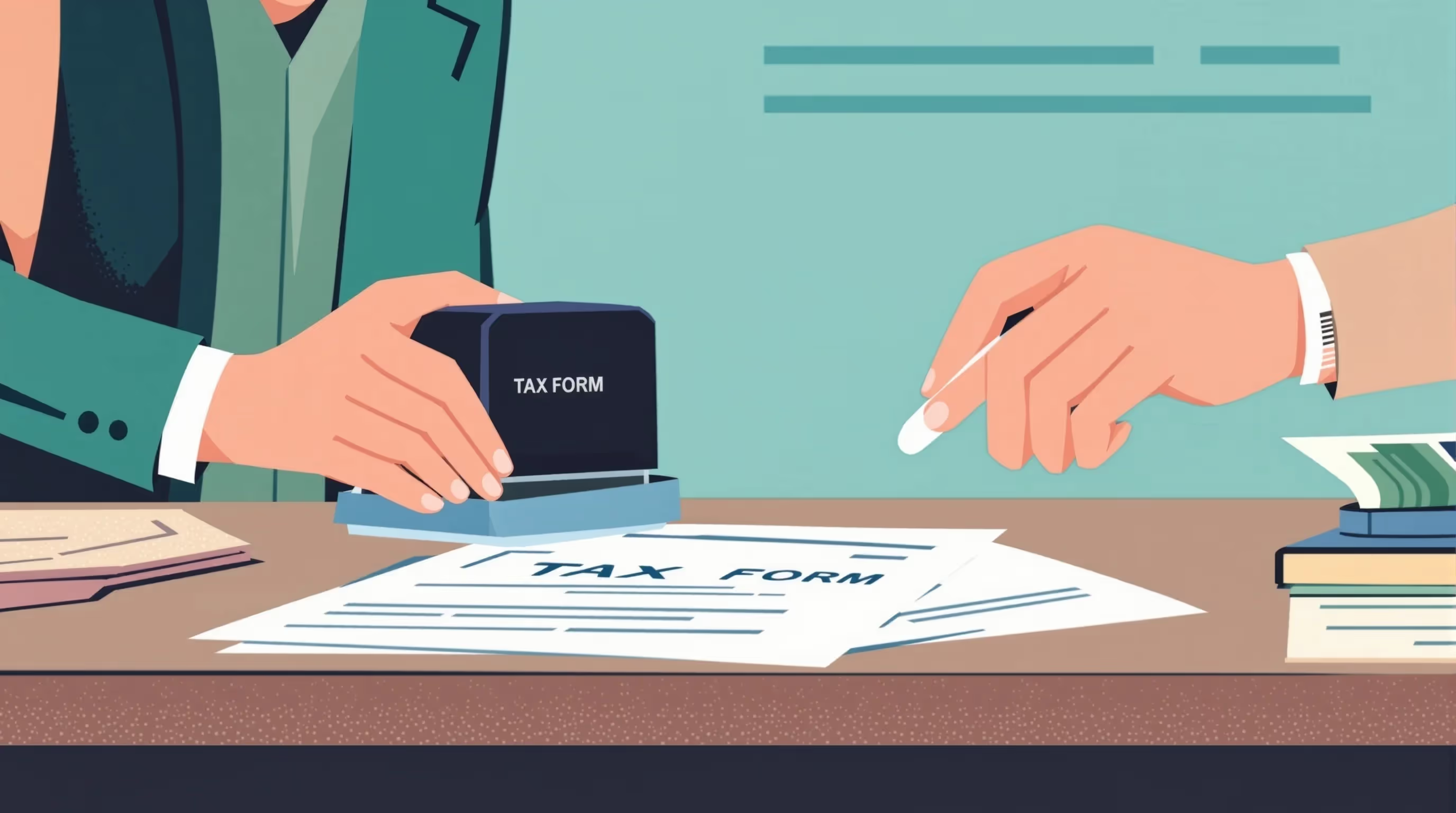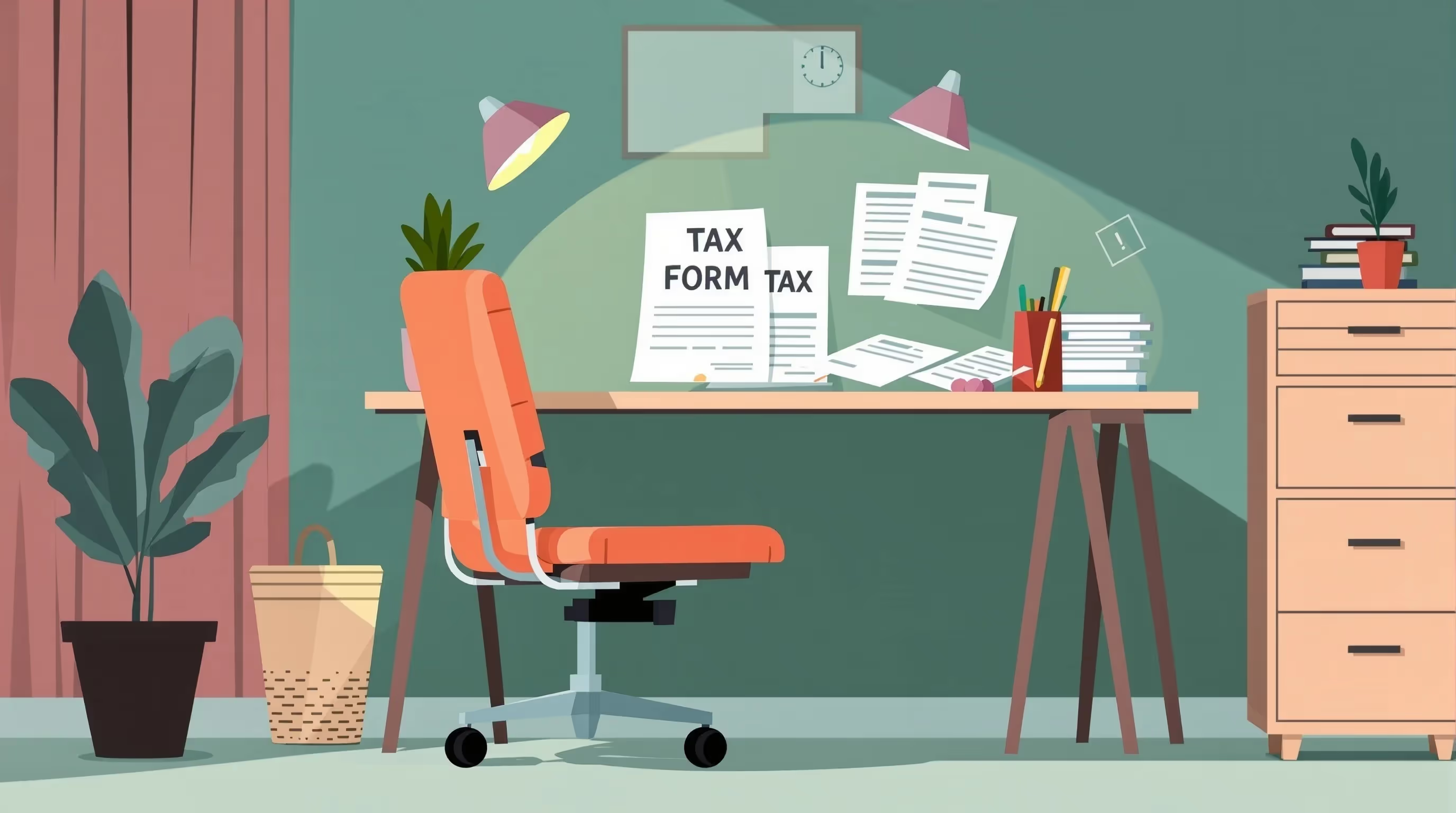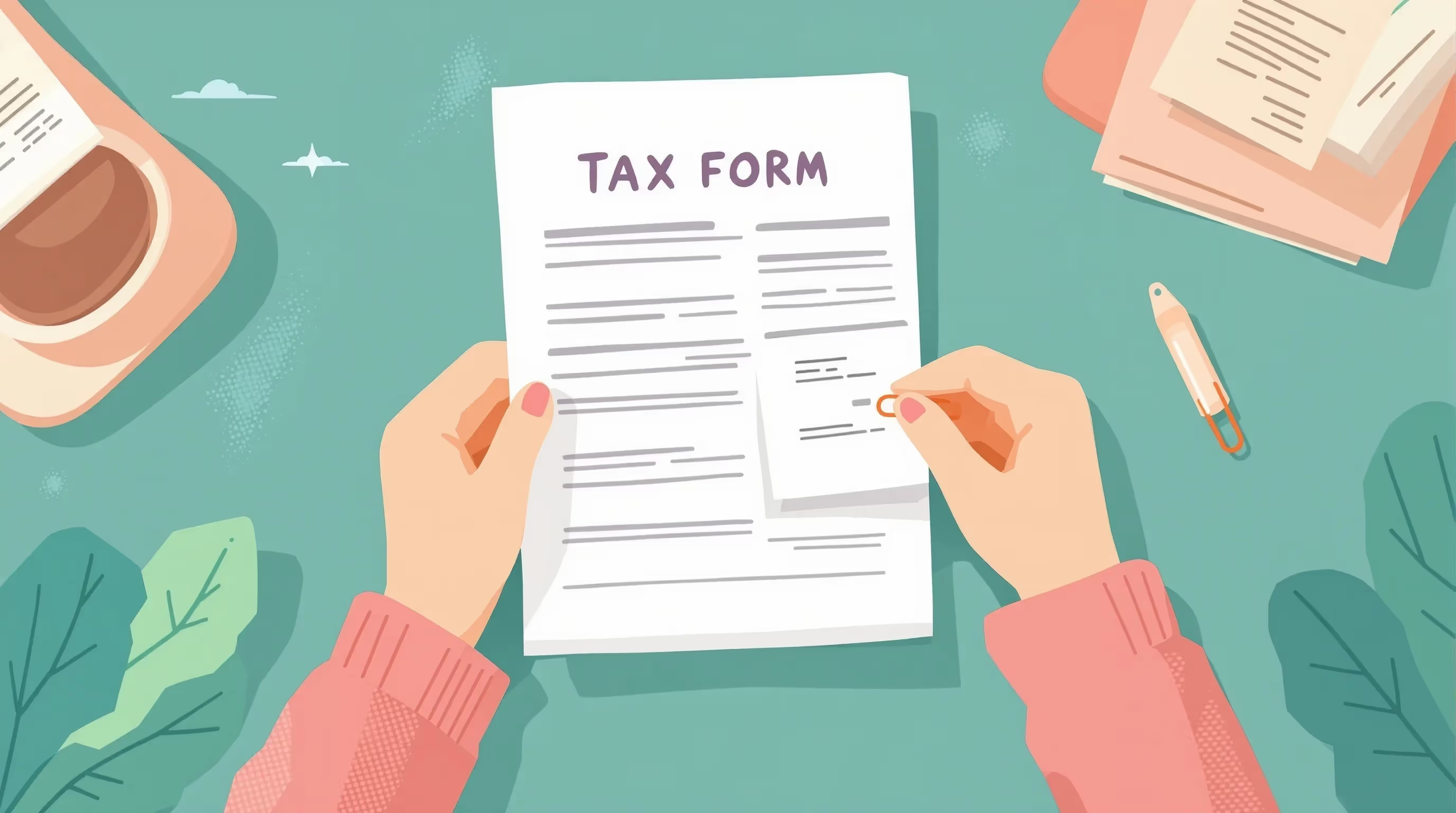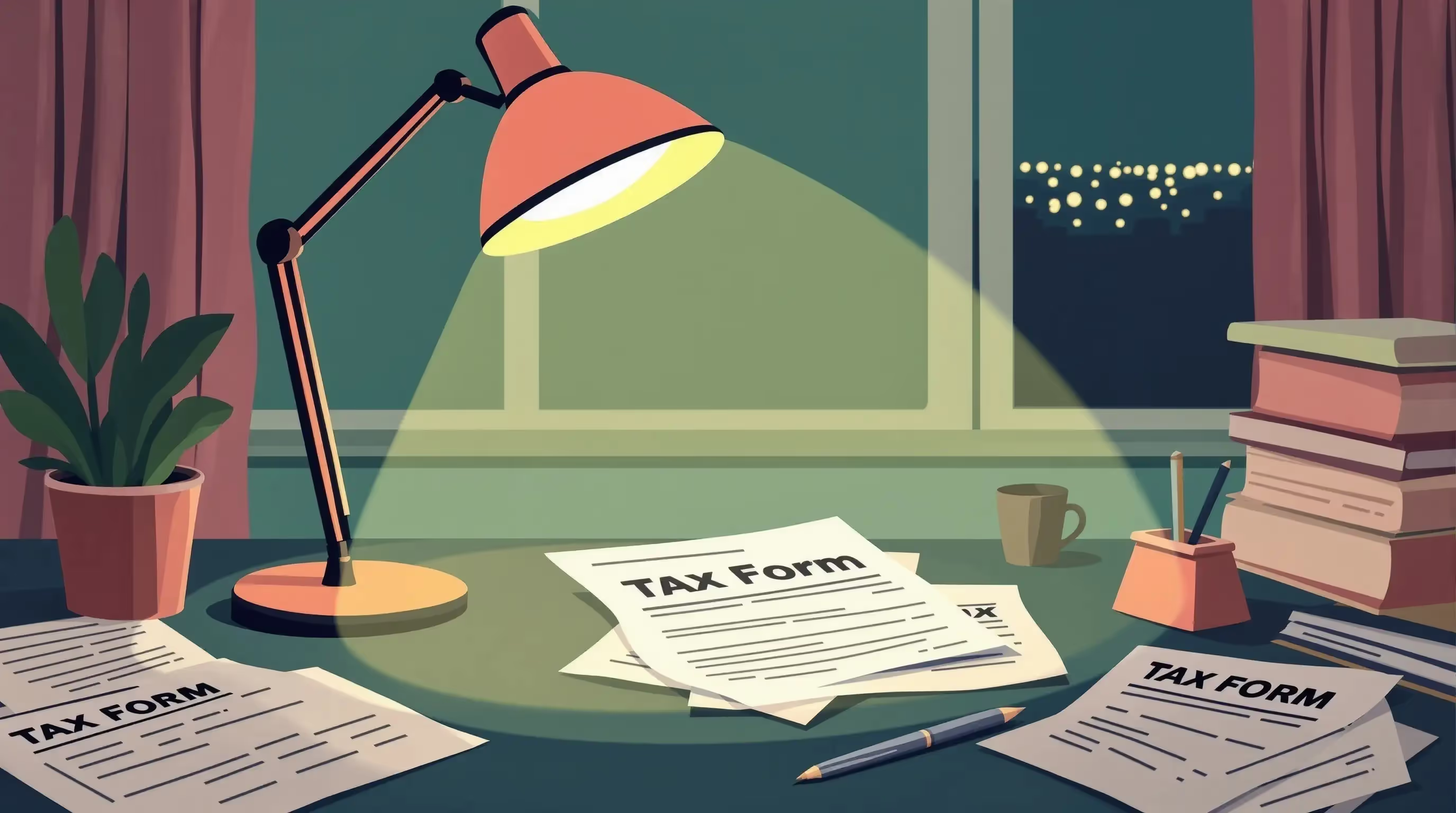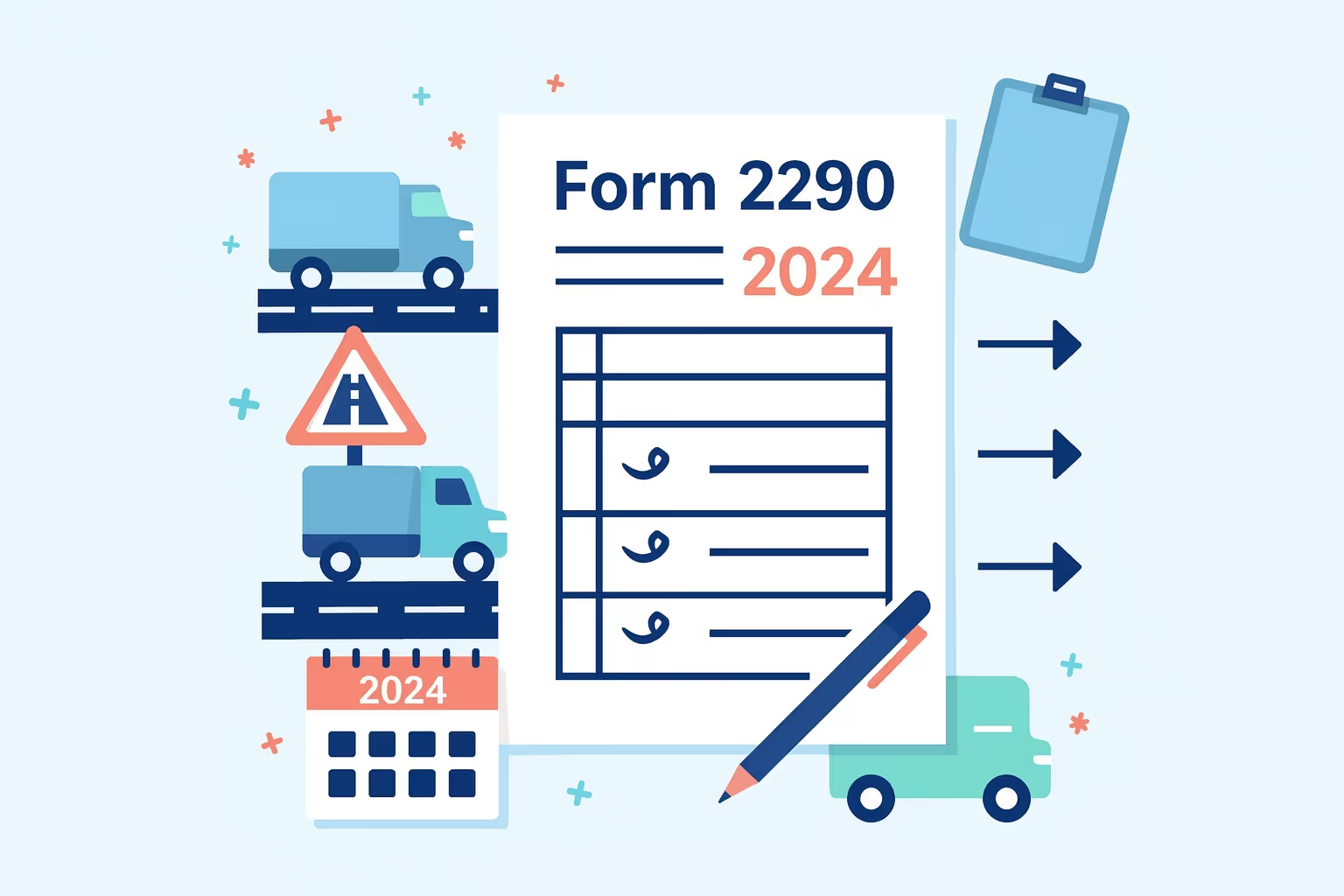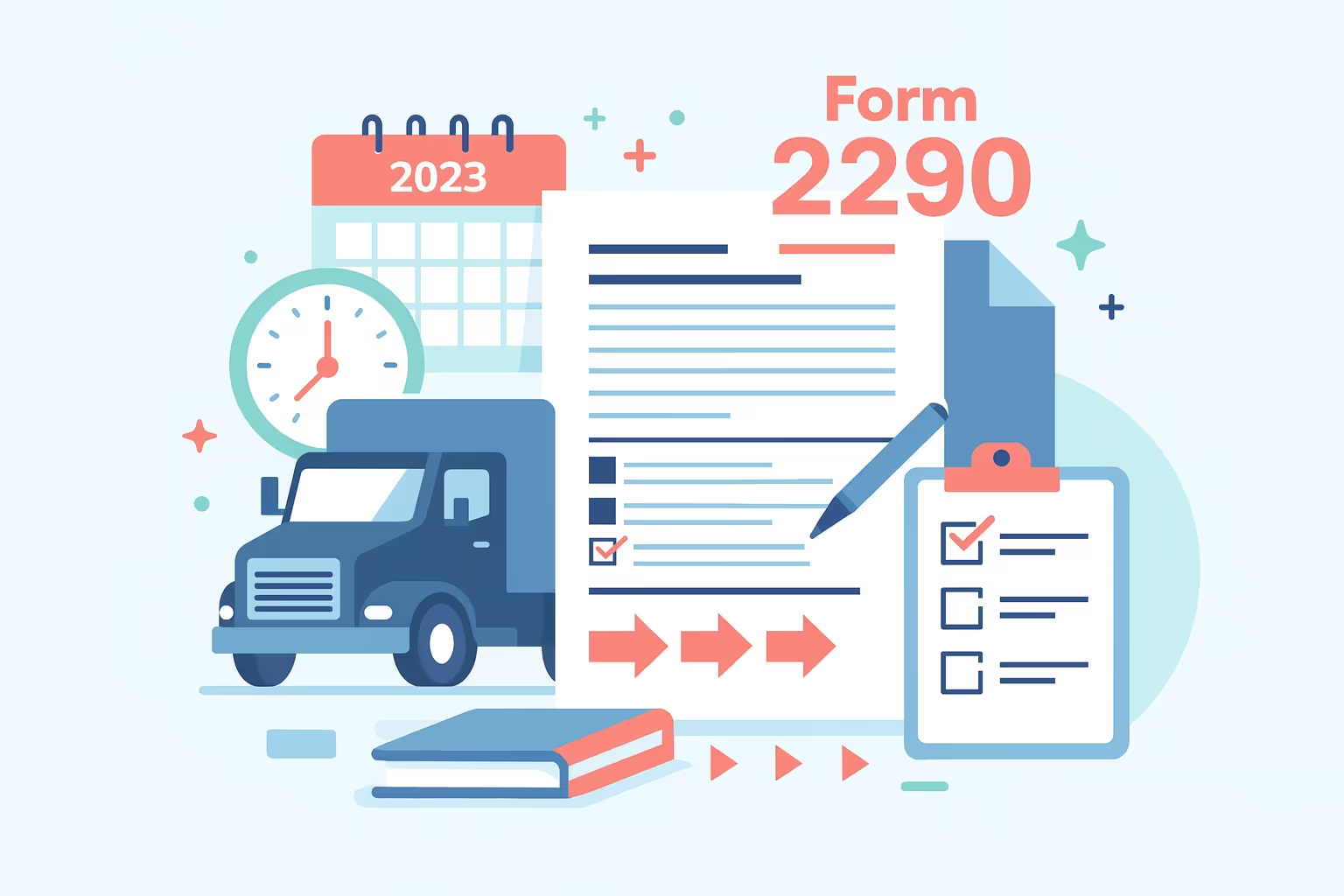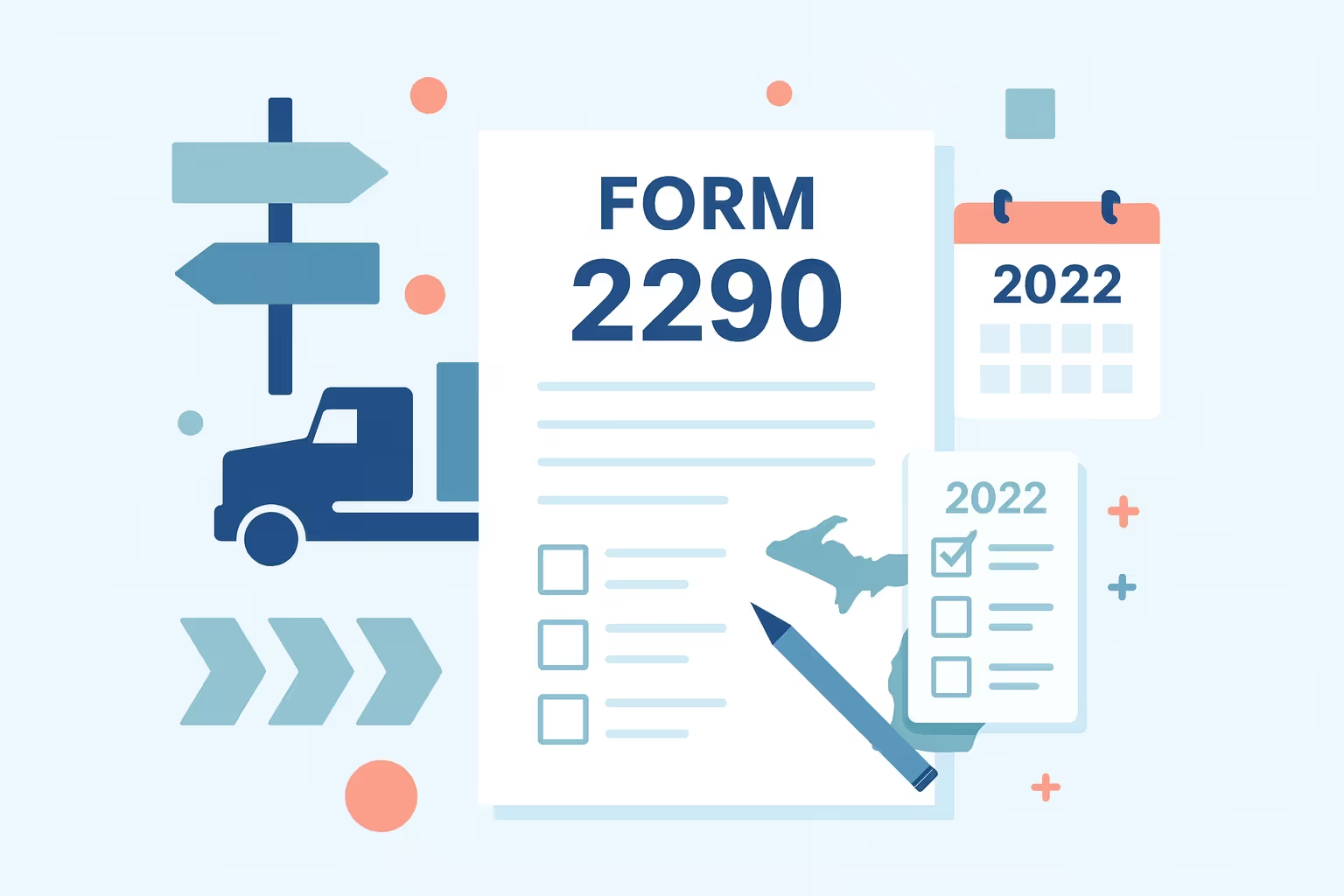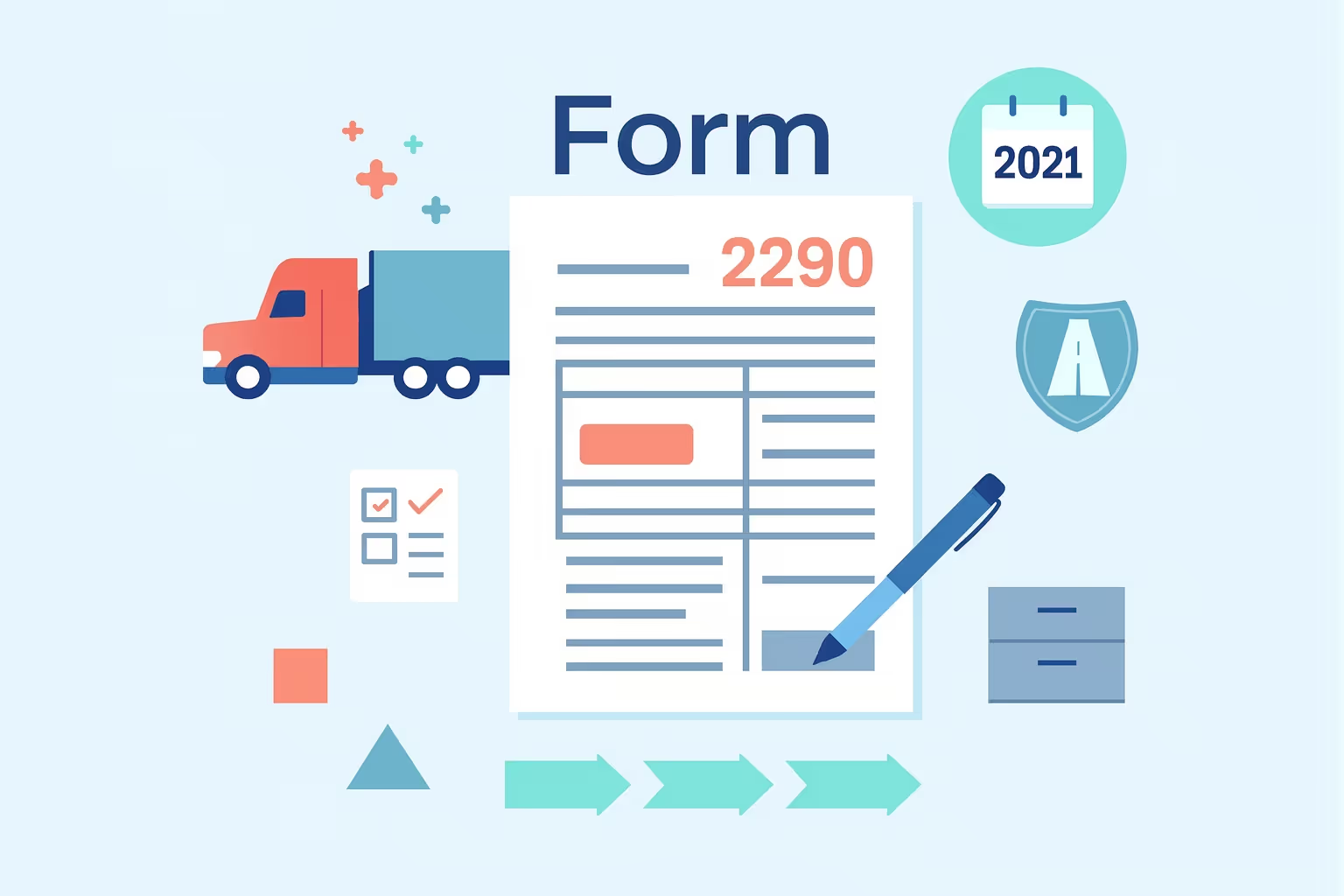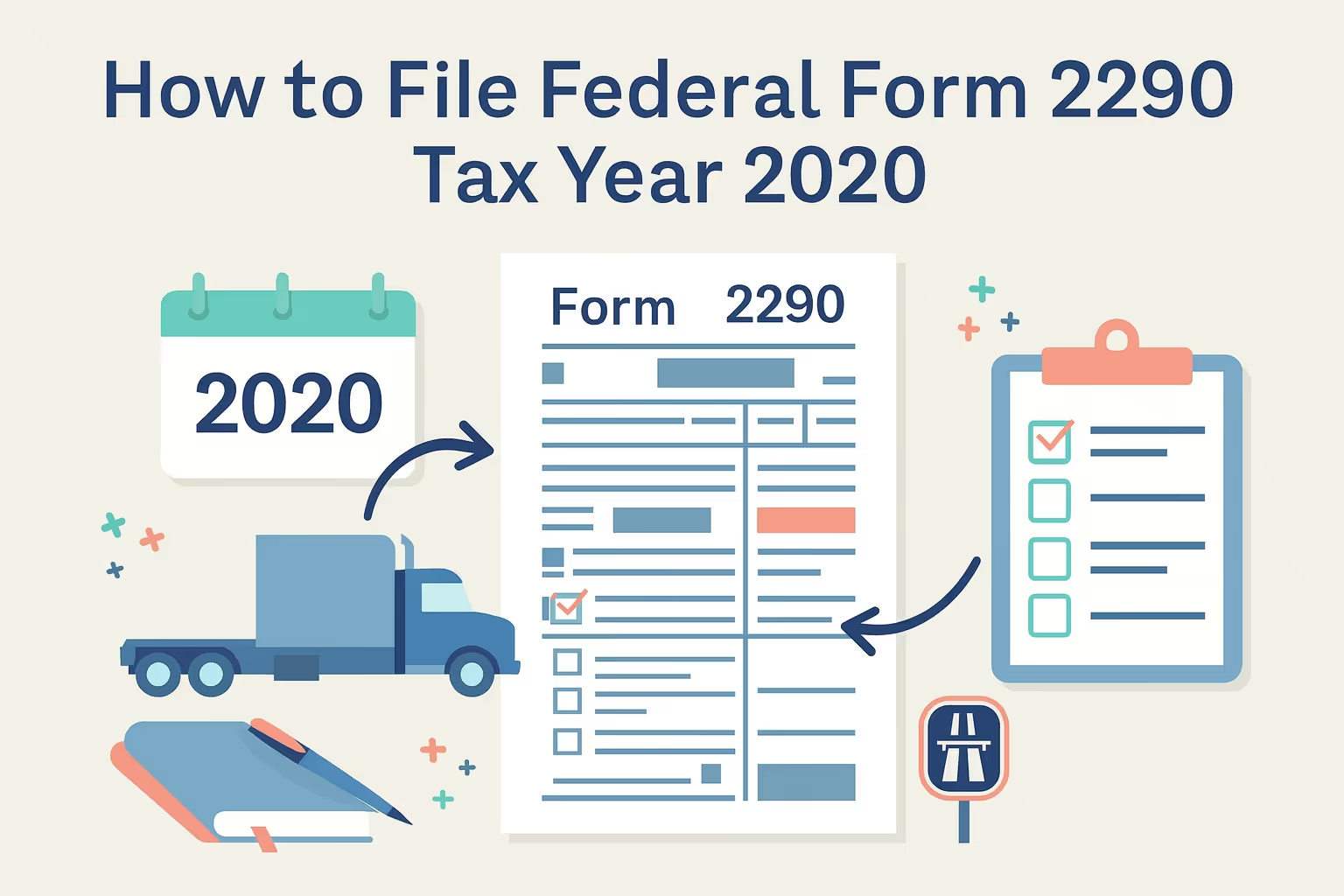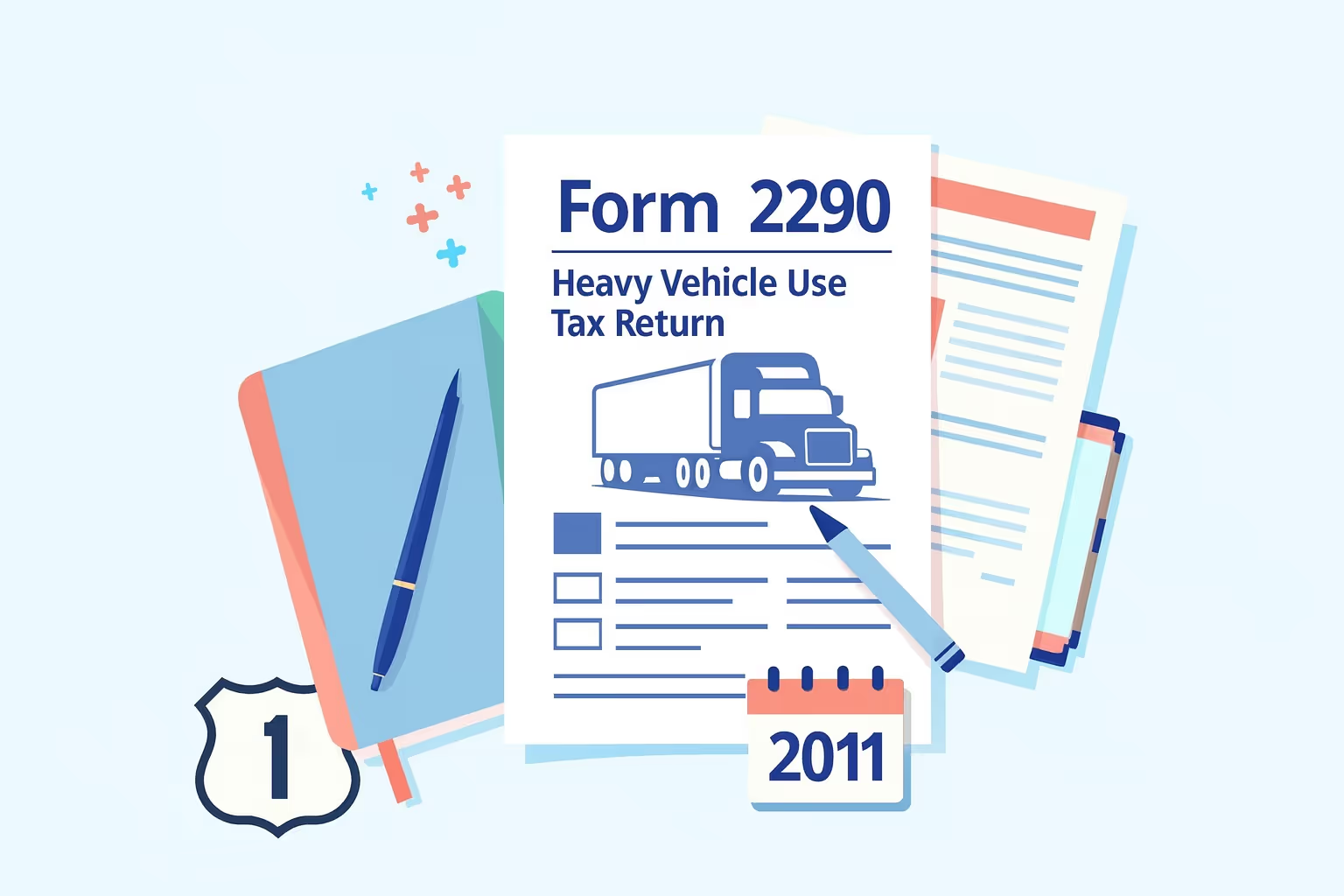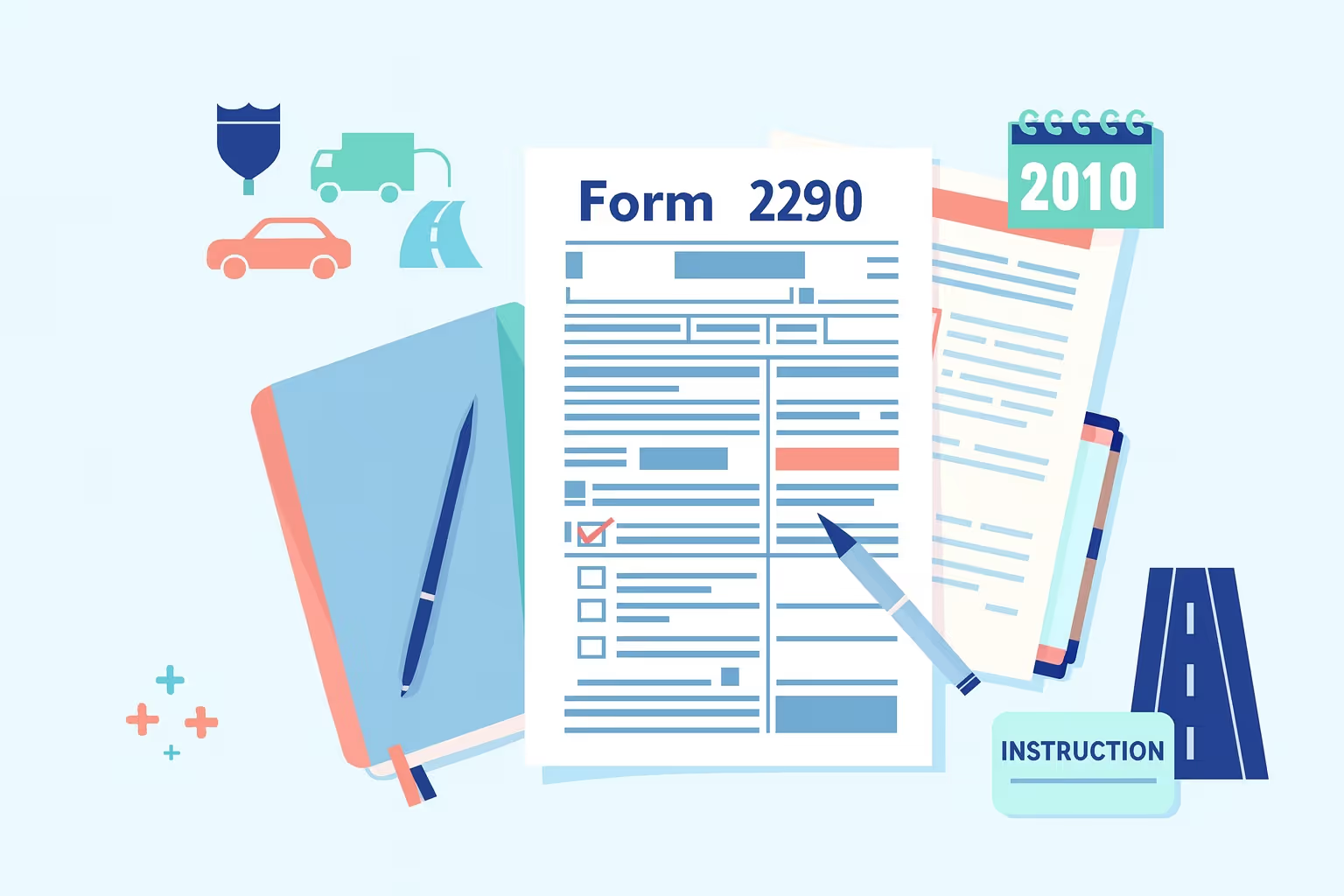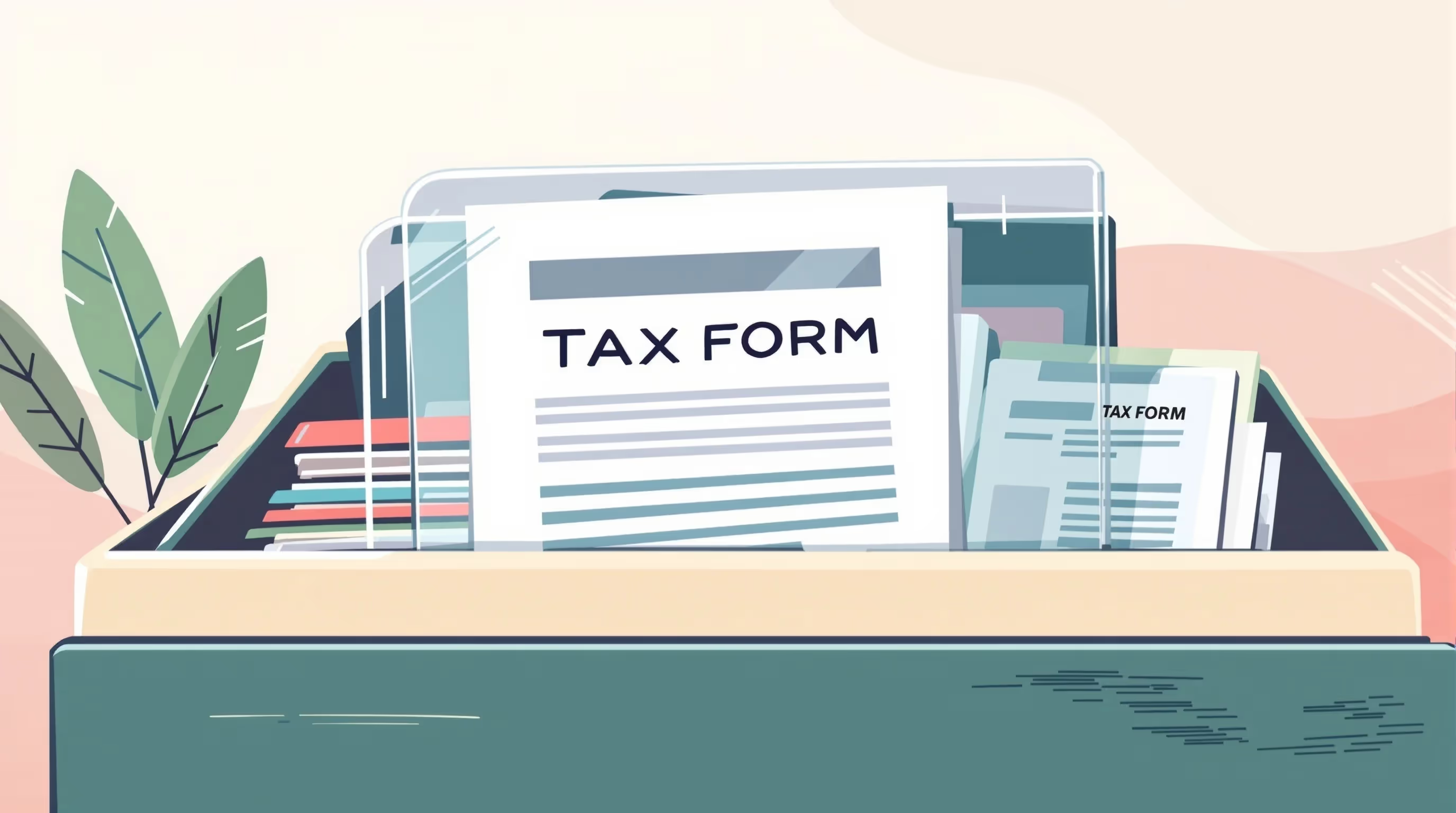
What IRS Form 2290 (2019) Is For
IRS Form 2290 (2019) serves as the Heavy Highway Vehicle Use Tax Return for motor vehicles weighing 55,000 pounds or more. Taxpayers use it to report their vehicle details, calculate the tax owed, and pay the Heavy Highway Vehicle Use Tax to the Internal Revenue Service. The filing period for this specific form covers July 1, 2019, through June 30, 2020.
Vehicle owners can also use the form to claim credits for vehicles that were sold, destroyed, or used below the mileage limit during the 2019 tax period. Completing the correct revision helps ensure compliance with federal tax law and accurate registration of eligible vehicles. Proper filing also helps prevent penalties, interest, and delays in tax refund processing.
When You’d Use Form 2290 for 2019
Taxpayers use Form 2290 for 2019 when they find unfiled returns or need to correct reported information. Filing may also be necessary if the Internal Revenue Service sends a notice showing unpaid taxes or errors on a prior federal income tax return. Late submission may result in a late filing penalty that accrues each partial month the return remains unpaid.
Those who owe taxes for 2019 should file promptly to limit additional costs. Taxpayers who qualify for an extension or must amend previous filings must include accurate figures for taxable weight, first vehicle use, and deductions claimed. Individuals filing for the first time or on behalf of a business must use complete identification details.
Late filing affects eligibility for penalty relief. Prompt action reduces total penalties and demonstrates intent to comply with income tax requirements.
Key Rules or Details for 2019
The 2019 tax period for Form 2290 covered July 1, 2019, through June 30, 2020, with the main due date on August 31, 2019. Since that date fell on a Saturday, the Internal Revenue Service extended the time to file your return to September 3, 2019. Taxpayers who missed this period are subject to late filing penalties and interest that continue to accrue until fully paid.
For the 2019 tax year, credit and debit card payments were suspended, and taxpayers had to use electronic filing if they reported 25 or more vehicles. The correct revision, labeled “Form 2290 (Rev. July 2019),” must be used for that period. Using an incorrect form version can result in rejection or delayed processing.
Filing the proper form ensures accuracy, compliance, and less risk of penalties. It also supports timely vehicle registration and eligibility for refunds when applicable.
Step-by-Step (High Level)
Taxpayers filing Form 2290 for the 2019 period must follow a structured process to ensure compliance. The steps below outline how to prepare, complete, and submit the return before or after the original tax deadline. Each step outlines what taxpayers must complete to ensure accuracy and timely processing.
- Taxpayers should obtain IRS account transcripts to verify prior filings and payments.
- Download the correct form version for the period from July 1, 2019, to June 30, 2020, from the IRS website.
- Complete both Schedule 1 copies, listing the correct Vehicle Identification Numbers and taxable weights.
- Calculate penalties and interest if the filing occurs after the original deadline.
- Submit the return electronically or mail it to the IRS processing center.
Following each step ensures that all filing requirements are met and prevents unnecessary delays.
Common Mistakes and How to Avoid Them
Taxpayers can prevent unnecessary delays and penalties by carefully reviewing their Form 2290 before submission. Common errors often occur in entries, identification details, or payment calculations. Each mistake can be avoided with proper verification and organization.
- Incorrect Vehicle Identification Numbers: Always confirm each VIN against official vehicle records before filing.
- Missing Signatures or Employer Identification Numbers: Double-check that the return is signed and includes a valid EIN to ensure acceptance.
- Failure to Pay Penalty Miscalculations: Taxpayers should use the IRS tax tables or instructions to calculate penalties accurately.
- Wrong Tax Period Used: Confirm the form matches the 2019 revision to prevent rejection.
- Incomplete Schedule 1 Submission: Submit both copies together to secure timely proof of payment.
Careful preparation helps taxpayers avoid errors, stay compliant, and prevent future tax complications.
What Happens After You File
After submitting Form 2290 for 2019, the Internal Revenue Service processes e-filed returns within minutes and paper filings in several weeks. Taxpayers receive a stamped Schedule 1, which serves as proof of payment for vehicle registration. Taxpayers who submit inaccurate information may experience correspondence delays or receive an adjusted tax bill.
Once the filing is processed, the IRS reviews any remaining balances and sends billing statements if amounts remain unpaid. Taxpayers can set up a payment plan or pay the full amount to avoid further penalties. The balance may be reduced if the calculation shows a lower tax liability than initially reported.
- Taxpayers should keep a copy of the stamped Schedule 1 for their records.
- Payments must match the tax bill to prevent discrepancies.
- Corrections can be filed through an amended return if necessary.
Accurate filing ensures proper documentation, correct assessment, and ongoing compliance with federal reporting requirements.
FAQs
What is the failure-to-file penalty?
The failure-to-file penalty applies when a taxpayer misses the required time to file their tax return. The Internal Revenue Service generally charges 4.5% per month, up to a maximum of 25%, on the unpaid tax. Filing promptly reduces the minimum penalty and prevents additional charges.
How is the late payment penalty calculated?
The late payment penalty equals 0.5% of the unpaid balance for every month or partial month the tax remains unpaid. Interest compounds daily until the full amount is settled. Late payment penalties continue until the taxpayer pays the balance in full.
Can I request penalty relief for late filing?
Taxpayers may request penalty relief if their failure to file was not willful neglect. The Internal Revenue Service considers reasonable cause explanations supported by documentation. Relief requests should be submitted in writing or through an official online form.
When is the IRS tax deadline for 2019 returns?
The standard tax deadline was April 15, 2020, for most taxpayers. If the date fell on a weekend or holiday, the due date moved to the next business day. The same rule applies to future years based on the filing date that the Internal Revenue Service establishes.
How does the interest rate apply to late payment penalties?
The interest rate on unpaid balances is compounded daily until the debt is paid. The rate adjusts quarterly based on federal short-term interest rates. Taxpayers should stay aware of these updates when calculating their total liability.












